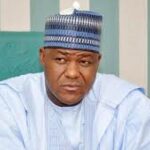President Muhammadu Buhari’s recent state visit to the United States of America enjoyed rave reviews in the media. A lot of the reviews revolved around security, politics and the economic gains. Of course, as the conversation still rents the air, we serve you some of the salient trade and economic discussions during the trip that would shape policies of both countries going forward.
It’s not news that Nigeria is seeking to diversify its economy along non-oil exports. If you’ve also been following the trade war between the USA and China, you would probably have read how the USA is seeking new trade frontiers for its products, especially agricultural goods. Should the USA find those markets, it would most certainly go on a full trade offensive against China.
Nigeria, with a population estimated at about 200 million, largely underserved, is a market indeed the United States isn’t glossing over. Thus, President Buhari, plagued with huge frightening insecurities across the country, indeed asked for help from President Trump of the US. Trump would quickly agree but not without extracting a commitment from Nigeria to open its doors to America’s products, especially agricultural products. Recall, to grow local agriculture capability and improve food sufficiency imposed restrictions and or high import duties on some agricultural products. Following those restrictions, Nigeria is indeed witnessing increased local production of certain staples such as rice, soya beans, cassava, sesame seeds, ginger etc. There has also been increased local investments and innovations in the agricultural space.
But there could be disruptions in the Nigerian agricultural gains should America flood Nigeria with its agricultural products.
“For a country which we assist with $1 billion every year, you must do more to open the market to us,” Trump pointedly said.
He also remarked at the press conference that, more than anything else both discussed how American agriculture products will enter into Nigeria but there are certain barriers that don’t allow that to happen. “But for the good of our farmers and for the good of Nigeria, and all of Africa, it will be very good that we sell our great agricultural products into Nigeria and that will happen and we will be working on that right away” Mr. Trump said.
However, Mr. Trump was quick to assure Nigeria it won’t engage in predatory trade deals. “I believe Nigeria is one of our largest trade partners in the region. We look forward to growing our trade relationship on principle of fairness and reciprocity” Mr. Trump said that would be substantially interrogated going forward.
While commending President’s Buhari’s fight against corruption, he demanded for level playing ground.
‘‘President Buhari has also taken several steps to fight corruption and improve the Nigerian business climate. And most of all to me — and again — is ripping down those trade barriers. These measures will make it easier for Nigeria and the United States companies to invest. And we will be investing substantially in Nigeria if they can create that level playing field that we have to very much ask for, and maybe demand.’’
President Buhari, while speaking about his government’s modest efforts at economic diversification, welcomed more investors from USA.
“Our aim is to diversify our economy by focusing on agriculture and food security; power and infrastructure. We have cut the importation of rice by about 90 percent thereby saving a significant amount of money. We very much welcome increased US investment in the Nigerian economy, especially in the non-oil sector” Mr. Buhari said.
“Economic relations between Nigeria and the United States are anchored on three major instruments, namely: the Bi-National Commission, Trade and Investment Framework Agreement and the Africa Growth and Opportunity Act” he noted.
On balance of trade between both countries, Mr. Buhari said “Nigeria’s trade volume with the United States stood at $6.07 billion according to 2016 statistics and comprised $4.17 billion worth of Nigerian exports to the US and $1.894 billion US exports to Nigeria. We should work to increase these figures substantially and to make balance of trade more even.”
Garba Shehu, Senior Special Assistant to the President, Media & Publicity wrote in his summary of successes of President Buhari’s visit to the US that “talks were also held between the Nigerian delegation and American Chief Executive Officers, who came from across various industries especially agriculture, digital economy and increasing value additions to locally produced raw materials.”
He listed the focus areas of the discussions to include: “the planned coming of a John Deer tractor assembly plant to produce 10,000 tractors, which will certainly create thousands of jobs in Nigeria.”
Also on the table he said “were several investment proposals across the food value chain including the production of chemicals for crop protection; a large-scale seed production company in Nigeria; a food ingredients company that will, among others set up an oilseed crushing plant with a capacity for about 50 million tons and a business engagement with local partners for the facilitation of international merchandising of local farm produce, serving as a firm assurance of buyer at the time of harvest.”
He would also report that “there are plans by the Dangote Group and others for new partnerships to bring research and high yielding crop varieties that have seen increases elsewhere from two to six tons of maize and two to seven tons of rice per acreage as achieved in Brazil and other countries.”
“Other new businesses proposed at the meetings included the setting up of consumer products by big giants like Proctor and Gamble, a refinery in Ogun, Burger King food chain and a plant for the production of Heinz tomato products, in all cases, walking back to integrate local producers of raw materials” Mr. Shehu said.
Commenting on the success of the trip, Alhaji Aliko Dangote, Chairman Dangote Group, who was also on the entourage, said: “We discussed about multiplying seeds especially soya beans, and maize. We also discussed tractors. I believe there are interesting times ahead. We discussed with the tractor manufacturers to buy at least 10,000 tractors to help small holder farmers. Those are the ones we want to teach modern farming.
“In September this year, Nigeria will be the biggest African country in fertiliser export.
We also discussed also on oil and gas, power generation and national carrier. So I feel it’s a very successful trip,” he concluded.
Also commenting, Mr. Rislanudeen Mohammed, an economist and investment analyst based in Abuja said “Mr. President’s trip is positive and provided a win-win deal for both Nigeria and the United States of America.”
The former acting Managing Director at Unity Bank also said the “discussions are for mutual economic benefit. It is essentially symbiotic.”
“The increasing influence of China in Nigerian and other African economies gives strong cause for Americans to re-strategise their relationship with them. Moreso, trade balance seems a little bit lopsided in our favor. Essentially President Trump is bilateralist and not multilateralist in terms of negotiations given his background as a businessman” he noted.
“Nigeria is a huge market with young population. As our economy consolidates its exit out of recession, consumption will increase while America needs a new market frontier for its goods especially in area of Agriculture and Industries.
“On the other hand, Nigeria needs American support in terms of acquiring exotic arms and military equipment like the recent purchase of Tucano aircraft to fight insurgency, especially in the North east and also intelligence gathering support to fast track dealing with emerging insecurity challenges elsewhere in North central Nigeria,” he added.
According to Mr. Mohammed, “Nigeria also needs to ensure that American companies’ investments in oil and gas are further consolidated for mutual benefit.
“We also need America to continue to buy our oil given its high grade nature and notwithstanding their investment in more expensive shale oil. The visit provided an opportunity for Nigeria to negotiate and ensure our industries, especially textile industries, optimize the huge untapped benefit of exporting to America under the US Africa Growth and Opportunities Act. Discussions have so far been very good and for mutual benefit of both countries” he concluded.
We cannot concretely tell how the deals would eventually be firmed up, but unfettered access of US agriculture products to Nigeria would sure hurt the gains recently recorded in building local food sufficiency. It may also jeopardise ability of local farmers to service their debts and cripple local innovations and solutions. It may also substantially disrupt the gains recorded in the CBN financed Anchor Borrowers’ Programme.
 Join Daily Trust WhatsApp Community For Quick Access To News and Happenings Around You.
Join Daily Trust WhatsApp Community For Quick Access To News and Happenings Around You.


